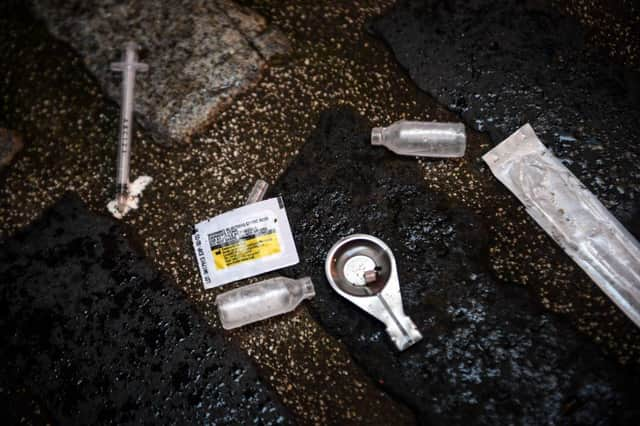Most drug-related deaths since records began in England and Wales last year


There were more than 4500 drug-related deaths in England and Wales in 2020, the highest since records began in 1993 and up 3.8 per cent on the previous year.
The worst affected region was the North East, while Wales recorded its lowest rate since 2014.
At a glance: 5 key points
Advertisement
Hide AdAdvertisement
Hide Ad– There were 4561 drug deaths in England and Wales in 2020, according to the Office for National Statistics (ONS)
– Men accounted for more than two thirds of all registered deaths, while men and women in the most deprived areas of England were five times more likely to die than those in the least deprived areas
– Around half the deaths involved an opiate, while 777 involved cocaine - an increase of 9.7 per cent and more than five times the cocaine deaths registered in 2010
– New data which was published yesterday shows that Scotland has the worst drug death rate in Europe, with 1339 registered last year
Advertisement
Hide AdAdvertisement
Hide Ad– The Government has said it will set up a new drugs unit to help end illegal drug-related illness and deaths, and has launched a consultation to improve access to naloxone, which helps reverse the effects of opioid overdose.
What’s been said?
Eytan Alexander, a recovering addict and chief executive of the UK Addiction Treatment Group, said the rise is “saddening but unsurprising”.
He said: “We’re living in a parallel pandemic; a drug, alcohol and mental health pandemic that has only worsened due to the virus.
“Enough is enough now, we need to come together as a society and take real action to help vulnerable people before more people lose their lives.”
Advertisement
Hide AdAdvertisement
Hide AdDr Emily Finch, vice-chair of the addictions faculty at the Royal College of Psychiatrists, said: “Years of cuts have left addictions services ill-equipped to treat people and prevent these deaths from rising.
“The Government needs to wake up to the fact that cuts to services, disconnecting NHS mental health services from addiction services and shifting the focus away from harm reduction to abstinence-based recovery is destroying lives and fuelling the increase in drug-related deaths.”
Jon Murray, executive director of services in England at the charity With You, said it is no surprise that deaths were highest in the most deprived areas.
He said: “Issues such as rising homelessness, poor mental health and a lack of economic opportunities all lead to people using drugs, and for many, these challenges have become worse due to the pandemic.
Advertisement
Hide AdAdvertisement
Hide Ad“Too many people who need treatment aren’t accessing it, and too many people are unaware of the potential harms of their drug use.”
Mark Moody, chief executive of the charity Change Grow Live, added: “For things to improve, we must directly challenge the stigma faced by people who use drugs.
“This starts by recognising that drug dependency is a chronic health condition which must be integrated alongside NHS services, criminal justice pathways and housing support.”
Clare Taylor, national director of operations at Turning Point, said every drug-related death is preventable and the rise constitutes a “public health emergency”.
Advertisement
Hide AdAdvertisement
Hide AdShe said: “We need to make sure that support is available to anyone with a drug or alcohol problem and services are able to intervene early, which we hope will be achieved if Dame Carol Black’s recommendations are implemented in full.”
A Government spokesman called every drug-related death a tragedy, adding: “We are already investing £148 million to tackle the root causes of drug misuse, including £80 million for treatment and recovery – the largest investment in the drug treatment system for 15 years.”
Comment Guidelines
National World encourages reader discussion on our stories. User feedback, insights and back-and-forth exchanges add a rich layer of context to reporting. Please review our Community Guidelines before commenting.